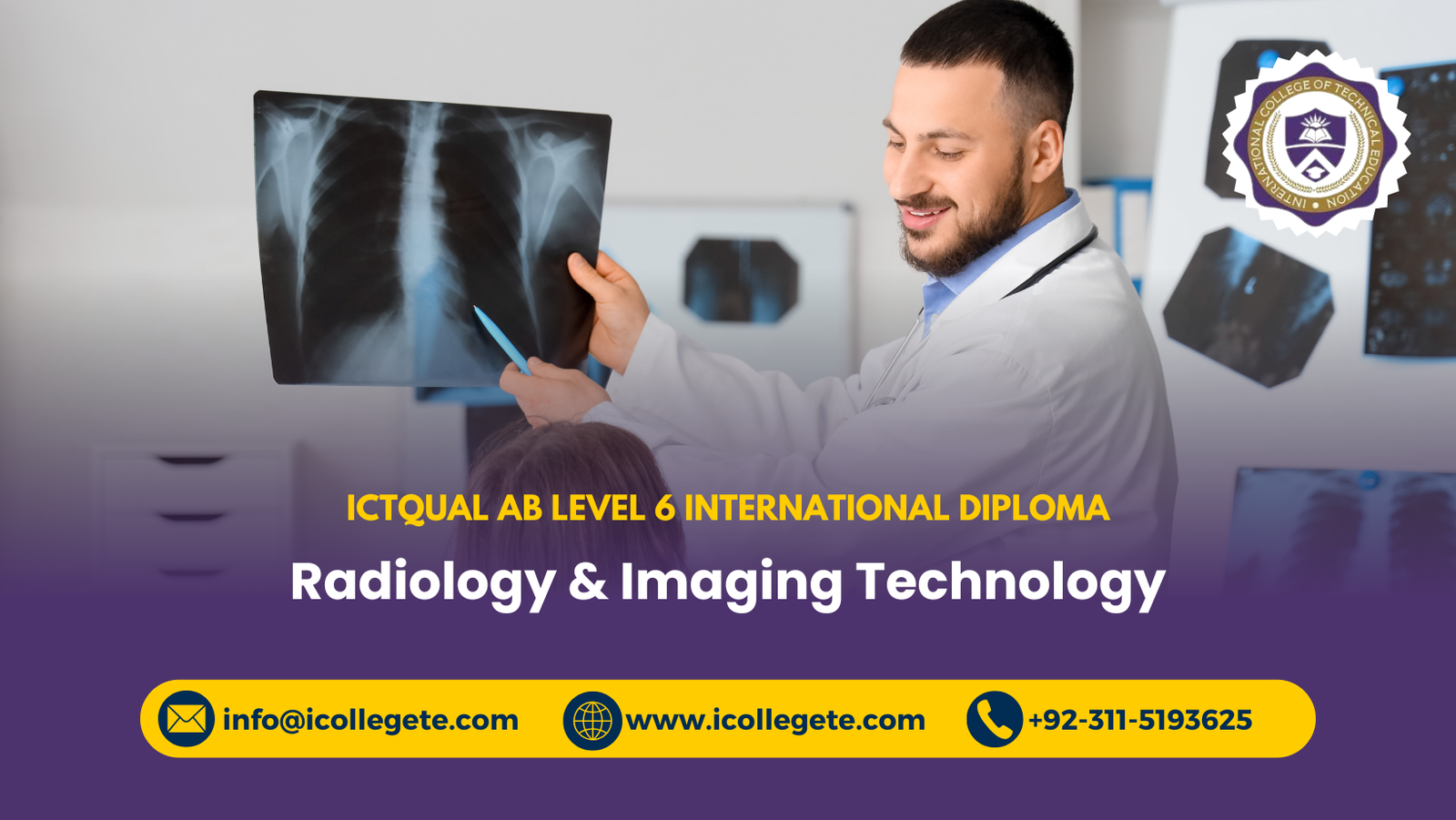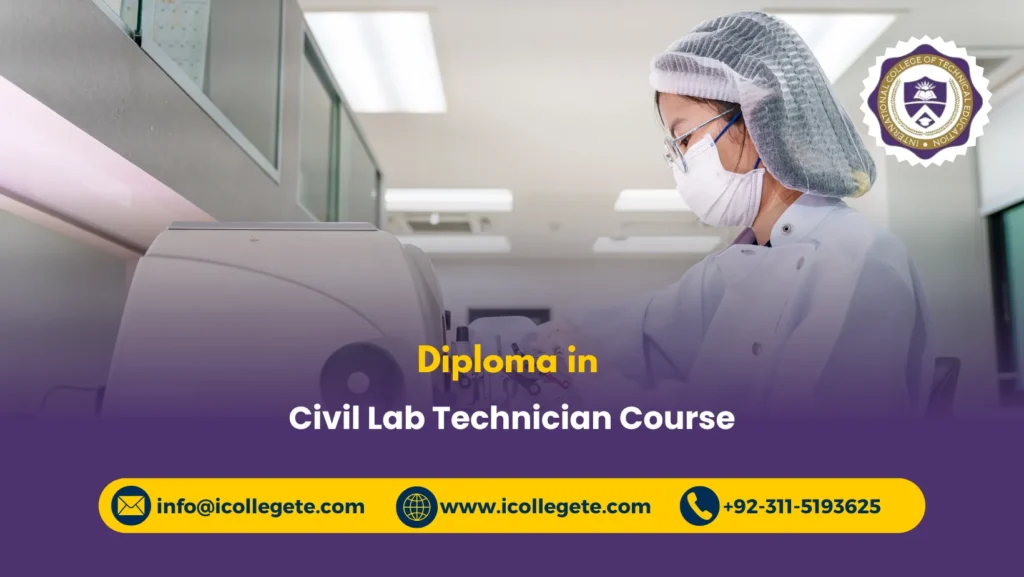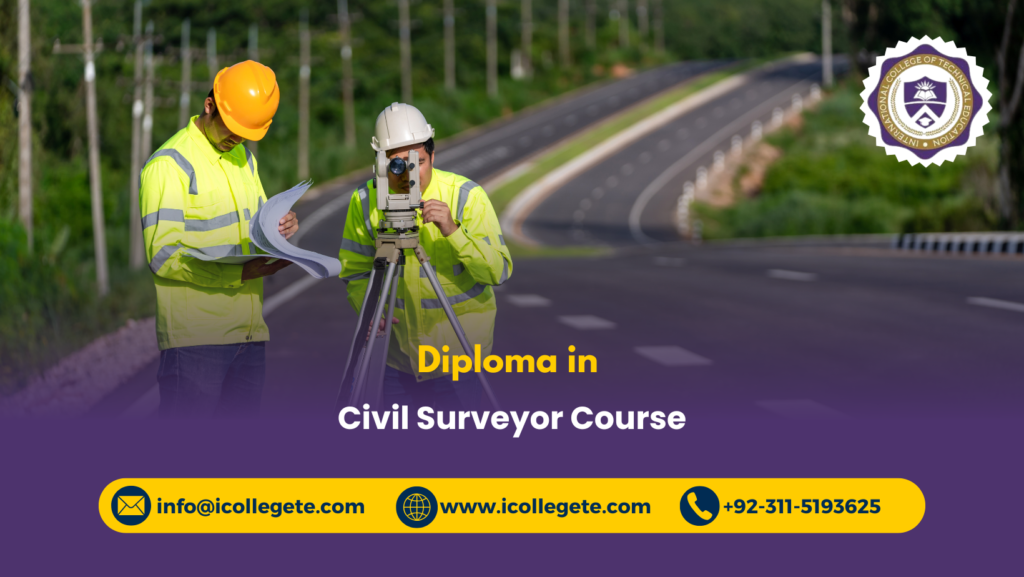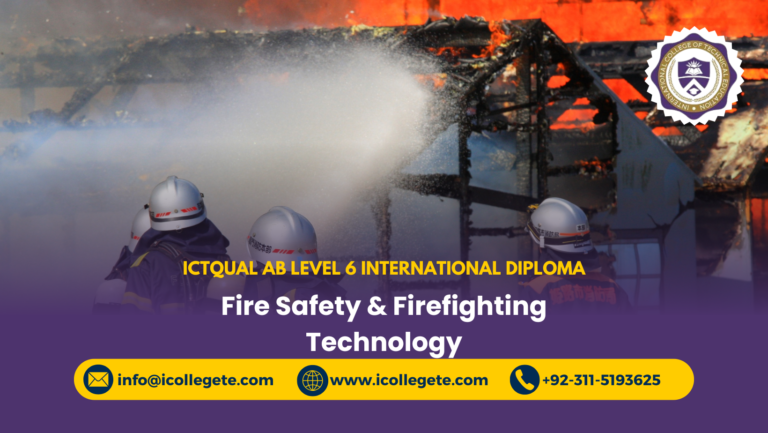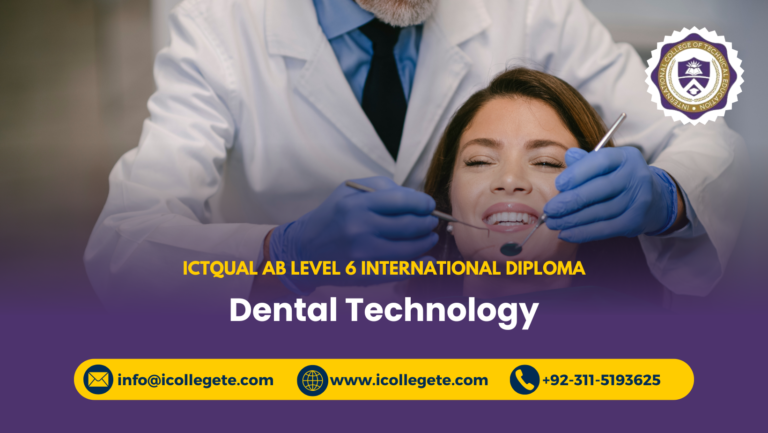The ICTQual AB Level 6 International Diploma in Radiology & Imaging Technology is a comprehensive qualification designed to prepare learners for advanced roles in diagnostic imaging and radiological sciences. This program provides in-depth knowledge of medical imaging technologies, radiation physics, anatomy, and patient care practices essential for accurate diagnosis and clinical support.
The course covers key areas such as X-ray technology, CT scanning, MRI principles, ultrasound imaging, radiation safety, and equipment handling. Learners develop practical and technical skills to operate imaging equipment effectively while maintaining patient safety and adhering to healthcare regulations and ethical standards.
Ideal for aspiring radiology technologists and healthcare professionals, this internationally recognized diploma enhances career opportunities in hospitals, diagnostic centers, imaging clinics, and healthcare institutions, while also offering progression pathways for further academic and professional development in radiology and medical imaging.
Year 1: Foundation in Radiology & Imaging Technology
- Introduction to Radiology and Imaging Sciences
- Human Anatomy and Physiology for Imaging
- Principles of Physics in Medical Imaging
- Fundamentals of Radiographic Techniques
- Radiation Safety and Protection
- Introduction to Medical Imaging Modalities
- Patient Care and Communication Skills
- Basic Medical Terminology
- Laboratory Safety and Quality Assurance
- Introduction to Imaging Equipment Operation
- Medical Ethics and Professional Conduct
- Research Methods in Healthcare
Year 2: Intermediate Radiology Applications
- Advanced Radiographic Techniques
- Computed Tomography (CT) Imaging
- Magnetic Resonance Imaging (MRI) Principles
- Ultrasound Imaging Fundamentals
- Nuclear Medicine and Radiopharmacy Basics
- Clinical Radiology and Diagnostic Interpretation
- Imaging Informatics and Digital Systems
- Health and Safety in Imaging Departments
- Patient Assessment and Care in Imaging
- Quality Control and Equipment Maintenance
- Applied Research Methods in Imaging
- Leadership and Teamwork in Radiology Practice
Year 3: Advanced Specialisation and Professional Practice
- Advanced MRI and CT Imaging Techniques
- Interventional Radiology Procedures
- Advanced Ultrasound Applications
- Imaging in Oncology and Cardiology
- Radiology Reporting and Interpretation Skills
- Advanced Radiation Protection Practices
- Biomedical Imaging Technology Integration
- Emerging Trends in Radiology and Imaging
- Clinical Placement / Practical Competency
- Capstone Project / Dissertation in Radiology
- Professional Practice and Reflective Development
- Healthcare Management and Policy in Imaging
Year 1: Foundational Knowledge
Introduction to Radiology and Imaging Sciences
- Understand the principles and scope of radiology and medical imaging.
- Identify different imaging modalities and their clinical applications.
- Recognise the role of imaging in patient diagnosis and treatment planning.
Human Anatomy and Physiology for Imaging
- Demonstrate knowledge of human anatomy relevant to imaging procedures.
- Understand physiological processes that affect imaging outcomes.
- Apply anatomical knowledge in interpreting radiographic images.
Principles of Physics in Medical Imaging
- Explain the physical principles underlying imaging modalities.
- Apply concepts of radiation, energy, and wave propagation to imaging technology.
- Understand factors affecting image quality and safety.
Fundamentals of Radiographic Techniques
- Perform basic radiographic procedures under supervision.
- Understand positioning, exposure, and imaging parameters.
- Apply standard protocols for routine diagnostic imaging.
Radiation Safety and Protection
- Apply principles of radiation protection for patients and staff.
- Understand regulatory and legal frameworks in radiation safety.
- Implement safe practices in imaging environments.
Introduction to Medical Imaging Modalities
- Recognise different imaging modalities and their diagnostic purposes.
- Understand the advantages and limitations of each modality.
- Identify indications for modality selection.
Patient Care and Communication Skills
- Demonstrate effective communication with patients and healthcare teams.
- Apply patient-centred care principles during imaging procedures.
- Address patient concerns and ensure comfort and safety.
Basic Medical Terminology
- Use appropriate terminology for radiology and clinical communication.
- Interpret medical terms in imaging reports and documentation.
- Enhance clarity in professional interactions.
Laboratory Safety and Quality Assurance
- Implement safety protocols in imaging laboratories.
- Understand quality assurance procedures for equipment and procedures.
- Monitor and maintain compliance with safety standards.
Introduction to Imaging Equipment Operation
- Operate basic imaging equipment under supervision.
- Understand equipment functionality and maintenance basics.
- Apply standard procedures for equipment setup and usage.
Medical Ethics and Professional Conduct
- Apply ethical principles in clinical and imaging practice.
- Maintain confidentiality and professional behaviour.
- Understand legal responsibilities in patient care and imaging.
Research Methods in Healthcare
- Understand the fundamentals of healthcare research methodology.
- Design simple research projects relevant to imaging.
- Analyse and interpret basic research findings.
Year 2: Intermediate Proficiency
Advanced Radiographic Techniques
- Apply advanced positioning and exposure techniques.
- Interpret intermediate-level radiographic images accurately.
- Follow complex imaging protocols in clinical practice.
Computed Tomography (CT) Imaging
- Understand principles and applications of CT imaging.
- Perform CT procedures safely and accurately.
- Evaluate CT images for diagnostic purposes.
Magnetic Resonance Imaging (MRI) Principles
- Explain MRI physics and image formation.
- Conduct MRI procedures following safety guidelines.
- Recognise normal and abnormal imaging findings.
Ultrasound Imaging Fundamentals
- Perform basic ultrasound imaging procedures.
- Understand ultrasound physics and Doppler principles.
- Interpret ultrasound images in clinical contexts.
Nuclear Medicine and Radiopharmacy Basics
- Understand the use of radiopharmaceuticals in imaging.
- Apply safety measures in handling radioactive substances.
- Recognise clinical applications of nuclear medicine techniques.
Clinical Radiology and Diagnostic Interpretation
- Analyse images from multiple modalities for diagnosis.
- Correlate imaging findings with patient history and clinical data.
- Report findings effectively to healthcare teams.
Imaging Informatics and Digital Systems
- Use digital imaging systems, PACS, and EMRs effectively.
- Understand data storage, retrieval, and security in imaging.
- Apply informatics for efficient clinical workflow.
Health and Safety in Imaging Departments
- Implement department-wide safety protocols.
- Monitor and manage hazards in imaging settings.
- Ensure compliance with health and safety regulations.
Patient Assessment and Care in Imaging
- Conduct pre-imaging assessments and screening.
- Provide patient support during complex procedures.
- Address patient needs in high-stress or emergency settings.
Quality Control and Equipment Maintenance
- Perform routine quality control checks on imaging equipment.
- Identify and troubleshoot common equipment issues.
- Ensure optimal performance and compliance with standards.
Applied Research Methods in Imaging
- Design and conduct applied research projects in imaging.
- Collect, analyse, and interpret clinical imaging data.
- Present research findings in written and oral formats.
Leadership and Teamwork in Radiology Practice
- Demonstrate leadership in clinical imaging teams.
- Collaborate effectively with multidisciplinary healthcare teams.
- Develop strategies for efficient workflow and problem-solving.
Year 3: Advanced Specialization and Application
Advanced MRI and CT Imaging Techniques
- Conduct advanced imaging procedures with high accuracy.
- Optimise imaging protocols for complex clinical cases.
- Evaluate image quality and adjust techniques as required.
Interventional Radiology Procedures
- Assist in minimally invasive radiology procedures.
- Understand indications, techniques, and patient care requirements.
- Maintain safety standards during interventional procedures.
Advanced Ultrasound Applications
- Perform specialised ultrasound scans (e.g., obstetric, vascular).
- Interpret findings for complex clinical cases.
- Apply advanced imaging protocols and patient positioning.
Imaging in Oncology and Cardiology
- Recognise imaging applications in cancer and heart disease.
- Conduct imaging procedures for oncology and cardiac patients.
- Interpret diagnostic results for clinical decision-making.
Radiology Reporting and Interpretation Skills
- Produce accurate and professional radiology reports.
- Correlate imaging findings with clinical history.
- Communicate findings clearly to healthcare teams.
Advanced Radiation Protection Practices
- Apply advanced techniques to minimise patient and staff exposure.
- Implement safety protocols for high-dose procedures.
- Monitor compliance with regulatory standards.
Biomedical Imaging Technology Integration
- Integrate multiple imaging modalities for diagnosis.
- Understand emerging imaging technologies and applications.
- Apply technology effectively in clinical workflows.
Emerging Trends in Radiology and Imaging
- Stay updated with innovations in imaging technology.
- Analyse emerging trends for potential clinical applications.
- Adapt professional practice to evolving industry standards.
Clinical Placement / Practical Competency
- Gain hands-on experience in hospital or imaging departments.
- Demonstrate practical competence in real-world settings.
- Apply theoretical knowledge to patient care and imaging procedures.
Capstone Project / Dissertation in Radiology
- Conduct an independent research project or case study.
- Analyse data, draw conclusions, and present findings professionally.
- Contribute to the field of radiology through applied research.
Professional Practice and Reflective Development
- Reflect on clinical experiences to enhance professional growth.
- Develop strategies for continuous improvement and lifelong learning.
- Maintain professional standards and ethical conduct.
Healthcare Management and Policy in Imaging
- Understand management principles in radiology departments.
- Apply policy frameworks to improve service delivery.
- Lead initiatives for quality improvement and operational efficiency.
- Internationally recognized qualification in radiology and imaging technology
- Prepares learners for high-demand careers in diagnostic and imaging fields
- Develops advanced technical and clinical skills in medical imaging
- Provides hands-on experience with modern radiographic equipment
- Strengthens knowledge in anatomy, pathology, and imaging interpretation
- Equips learners with radiation protection and patient safety practices
- Enhances career opportunities in hospitals, clinics, and diagnostic centers
- Promotes ethical and evidence-based healthcare practice
- Builds expertise in both traditional and digital imaging systems
- Encourages research, innovation, and continuous professional development
- Expands global employability and international career prospects
- Offers opportunities for specialization in advanced imaging modalities
- Develops leadership and teamwork capabilities in healthcare settings
- Prepares learners for supervisory and managerial roles in radiology departments
- Provides a strong foundation for higher education and postgraduate studies
The ICTQual AB Level 6 International Diploma in Radiology & Imaging Technology is designed for learners and professionals aiming to build or advance careers in diagnostic imaging and radiological sciences. Enrollment is suitable for:
Healthcare graduates: Individuals with backgrounds in radiology, medical imaging, healthcare sciences, nursing, or related fields who want to specialize in radiology and imaging technology.
Radiology technicians and assistants: Practicing imaging professionals seeking advanced knowledge in X-ray, CT, MRI, ultrasound, and radiation safety.
Allied health professionals: Medical staff working in hospitals or diagnostic centers who wish to enhance their technical skills and career prospects in medical imaging.
Career changers: Professionals from science or healthcare-related fields who want to transition into radiology and imaging services.
International learners: With global recognition and progression opportunities, this diploma is ideal for those pursuing local and international careers in hospitals, diagnostic labs, and imaging centers.
